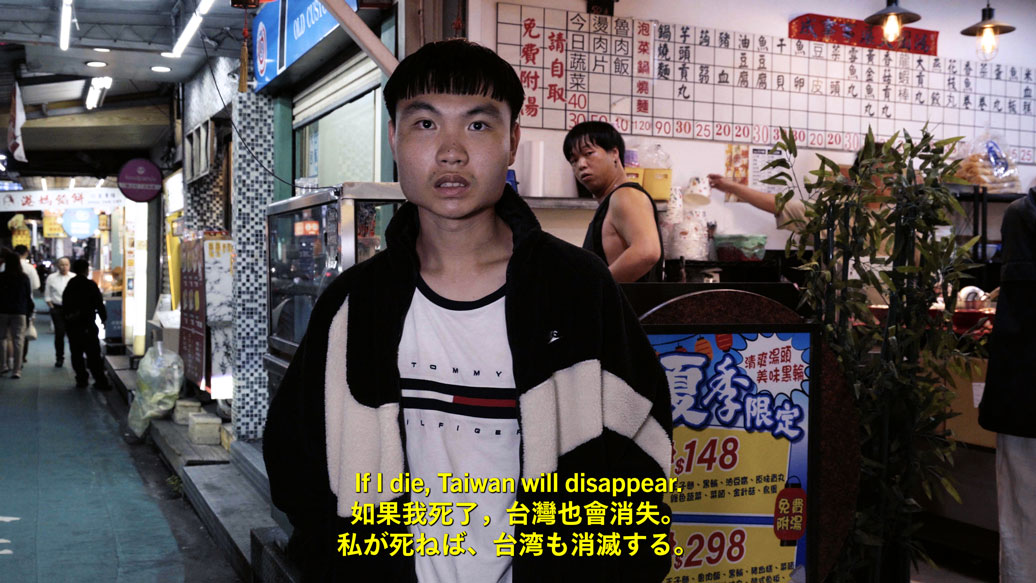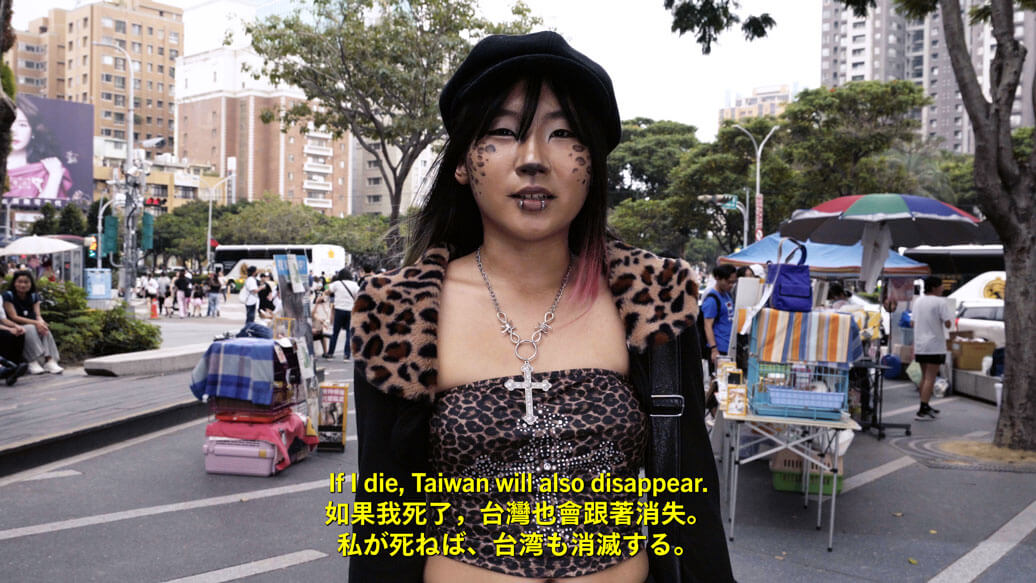Requesting People in Taiwan Who I Met by Chance To Declare if They Die, Taiwan Will Disappear, 2024


台湾の路上で偶然出会った人に、死んだら台湾が消滅すると宣言してもらう
2024、4Kシングルチャンネルビデオ(10分27秒)
2024アジアン・アート・ビエンナーレによる続編委託制作
2014年のひまわり学生運動の直後、丹羽は台北の路上で偶然出会った100人以上の人々に「私が死んだら台湾は消滅する」とカメラに向かって宣言するよう求めた。それから10年後の2024年、彼は台中の人々に同じことを求めた。国家とは、政治的であれ宗教的であれ、個人の集まりである。そのすべてが死ねば、国家はもはや存在しない。この場合、国家が存続する理由は次の世代にあると考えている人が多い。これは本当だろうか?人の死後(自らの死後?)も国家が存在し続けるとはどういうことなのだろうか?結局、国家の本質とは何なのか?ここで丹羽は、これらの宣言の映像をすべて時系列に並べることで、人間の存在と国家の存在を対置しようとした。
Requesting People in Taiwan Who I Met by Chance To Declare if They Die, Taiwan Will Disappear
2024, 4K single channel video (10min 27sec)
New sequel commissioned by Asian Art Biennial
Shortly after the Sunflower Student Movement in 2014, Niwa requested more than 100 people he happened to meet on the streets in Taipei to state on camera, "Taiwan will disappear if I die". Ten years later, in 2024, he requested people in Taichung to do likewise.
A nation, whether political or religious, is a group of individuals. If all those die, the state no longer exists. Most people believe that, in this case, the next generation will be the reason for the state's persistence. Is this true? What does it mean for a state to continue to exist after one's death (its own death?)? After all, what constitutes the essence of a nation? Here, Niwa sought to oppose human existence with the existence of the state by arranging all video footage of these declarations in chronological order.
Biennial How to Hold Your Breath: 2024 Asian Art Biennial Brochure Exhibition brochure Video guide tour 2024 Asian Art Biennial Video documentary 2024 Asian Art Biennial Review ArtAsiaPacific (Hong Kong) Review Art and Market (Singapore) Review The Reporter (Taiwan)